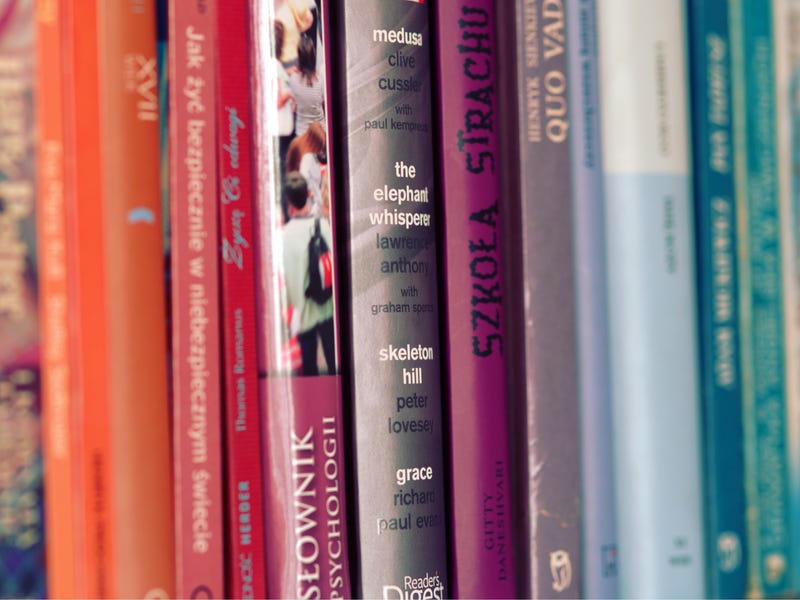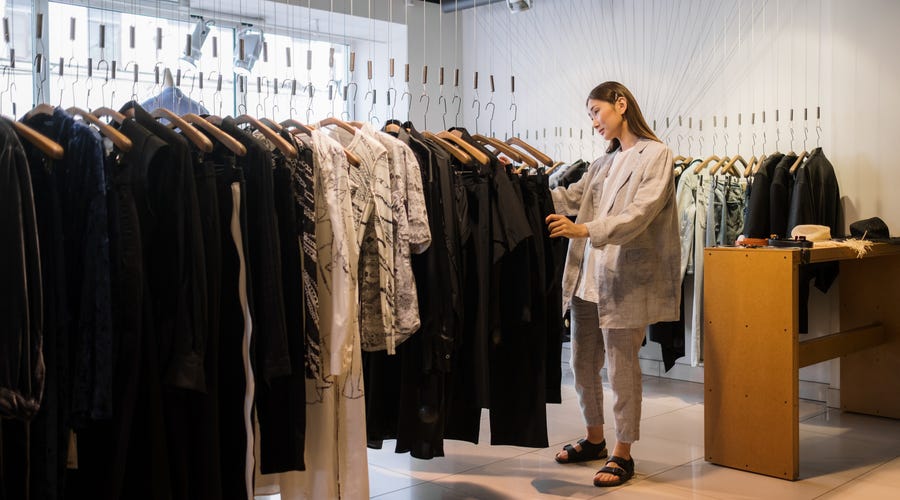
Clothes in German: A complete wardrobe of 160+ terms, idioms & cultural tips

Author
The fashion industry wouldn’t be the same without Haute Couture Designer Karl Lagerfeld and German top models like Claudia Schiffer and Heidi Klum. So if you happen to be in the fashion industry, you might have already come across some terms for clothes in German.
Even if you’re not that into fashion though, sooner or later you’ll run into clothes-related vocab when you’re learning German. After all, you and the people around you are probably wearing clothes most days of the week - and at some point you might want to talk about them!
Clothes in German
The proper way to say clothes in German is “Kleidung”. While the English word “clothes” has no singular, the German one has no plural. Some German slang terms for clothes are “Klamotten” or “Anziehsachen” (literally: to-dress-things).
There are a number of situations, in which it’s helpful to know the basic clothing terms from “hat” to “boots” in German:
- You might visit a German-speaking country and do some clothes shopping. Frankfurt, Vienna and Lausanne are great shopping destinations in Germany, Austria and Switzerland!
- If you don’t know a person’s name, you can make it clear who you’re talking about by referring to their clothes. So it’s good to know how to say “The lady in the brown coat” or “the guy in the yellow shirt” in German. It saves you from impolitely pointing fingers.
- Complimenting someone’s clothes is a safe and easy way to compliment a stranger, colleague or friend in German. Tell them they’re wearing a nice dress or you love their shoes. It will make their day!
Some helpful phrases you might want to remember include these important wardrobe-related questions and suggestions:
- Was soll ich anziehen?
(What should I wear?) - Wie ist der Dresscode?
(What’s the dress code?) - Wie seh ich aus?
(How do I look?) - Zieh einfach etwas Bequemes an.
(Just wear something comfortable.) - Ich würde an deiner Stelle lieber etwas Schickes anziehen
(I’d rather wear something fancy if I were you.) - Du siehst toll aus!
(You look great!)
Download our FREE activity poster
For a great way to memorize the most common clothing types in German, make it interactive. Download our printable activity poster today, it's sure to pay off. Let's go!
Dress codes in German
Usually German dress code is pretty casual. The most common styles are comfortable and casual or business casual in official settings. If you’re not going to the “Wiener Opernball” (the Vienna Opera Ball), the “Berlinale” (Germany’s biggest film gala) or similarly fancy events, it’s rather rare to see people dressed up in ball gowns and suits.
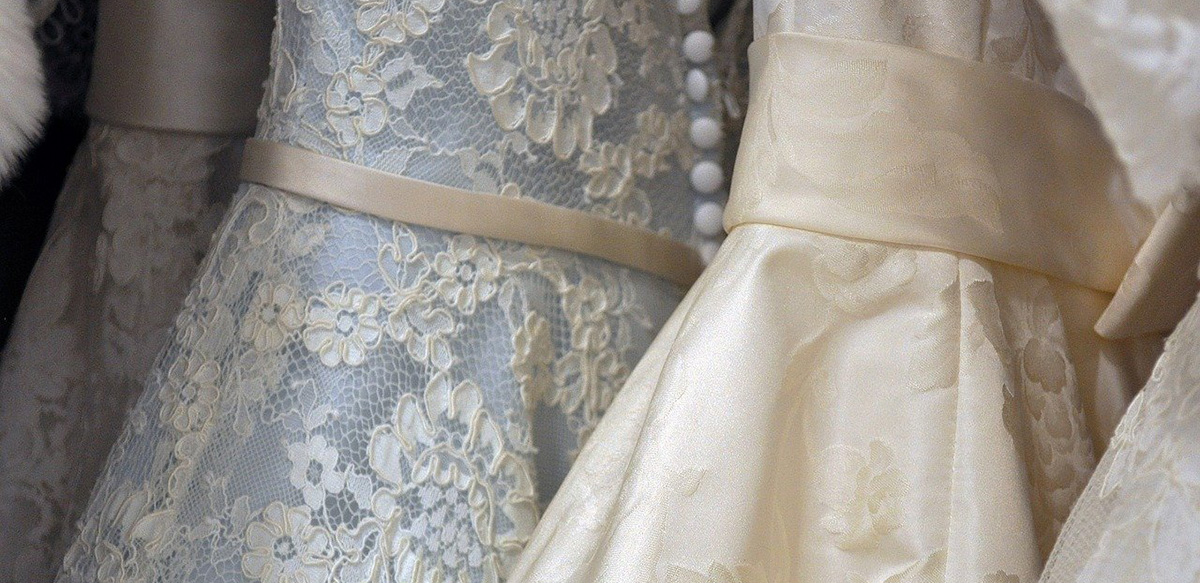
| English | German | IPA |
|---|---|---|
| Casual | Leger; Lässig | [leˈʒɛːɐ̯; ˈlɛsɪç] |
| Smart casual | Lässig-elegant | [ˈlɛsɪç-eleˈɡant] |
| Semi-Formal | Semi-Formell | [ˈzemi-fɔʁˈmɛl] |
| Formal | Formell | [fɔʁˈmɛl] |
| Office attire | Bürokleidung | [byˈʁoːˈklaɪ̯dʊŋ] |
| Suit | Anzug | [ˈanˌtsuk] |
| Evening wear | Abendgarderobe | [ˈaːbntaʁdəobə] |
| Black tie | Schwarze Krawatte | [ˈʃvaʁt͡sə kʁaˈvatə] |
| White tie | Weiße Krawatte | [ˈvaɪ̯sə kʁaˈvatə] |
| Evening gown | Abendkleid | [ˈa:bəntklaɪ̯t] |
| Ball gown | Ballkleid | [ˈbalˌklaɪ̯t] |
Underwear in German
Let’s hope you never encounter any underwear-related emergencies on vacation in Germany, but just in case, here is a list of underwear terms in German that will help you out.
| English | German | IPA |
|---|---|---|
| Undershirt | Unterhemd | [ˈʊntɐˌhɛmt] |
| Underpants | Unterhose | [ˈʊntɐˌhoːzə] |
| Chemise | Unterkleid | [ˈʊntɐklaɪ̯t] |
| Briefs | Kurze Unterhosen | [ˈkʊʁt͡sə ˈʊntɐˌhoːzən] |
| Bra | BH (short for “Büstenhalter”) | [beːˈhaː] |
| Camisole | Mieder | [ˈmiːdɐ] |
| Corset | Korsett | [kɔʁˈzɛt] |
| Boxers | Boxershorts | [ˈbɔksɐˌʃɔʁt͡s] |
| Socks | Socken | [ˈzɔkn̩] |
| Knee-length sock | Kniestrümpfe | [ˈkniːˌʃtʁʏmp͡fə] |
| Panties | Schlübbis (colloquial) | [ʃlʏpbɪs] |
| Thong | Tanga | [ˈtaŋɡa] |
| Stockings | Strümpfe | [ˈʃtʁʏmp͡fə] |
| Pantyhose | Strumpfhose | [ˈʃtʁʊmp͡fˌhoːzə] |
Outerwear in German
From windy Hamburg to snowy Munich, Germany isn’t exactly known for its great weather. So you better know what to wear for an outdoor activity. It always helps to ask a local what they suggest. All these outerwear words in German will come in handy for clarification.
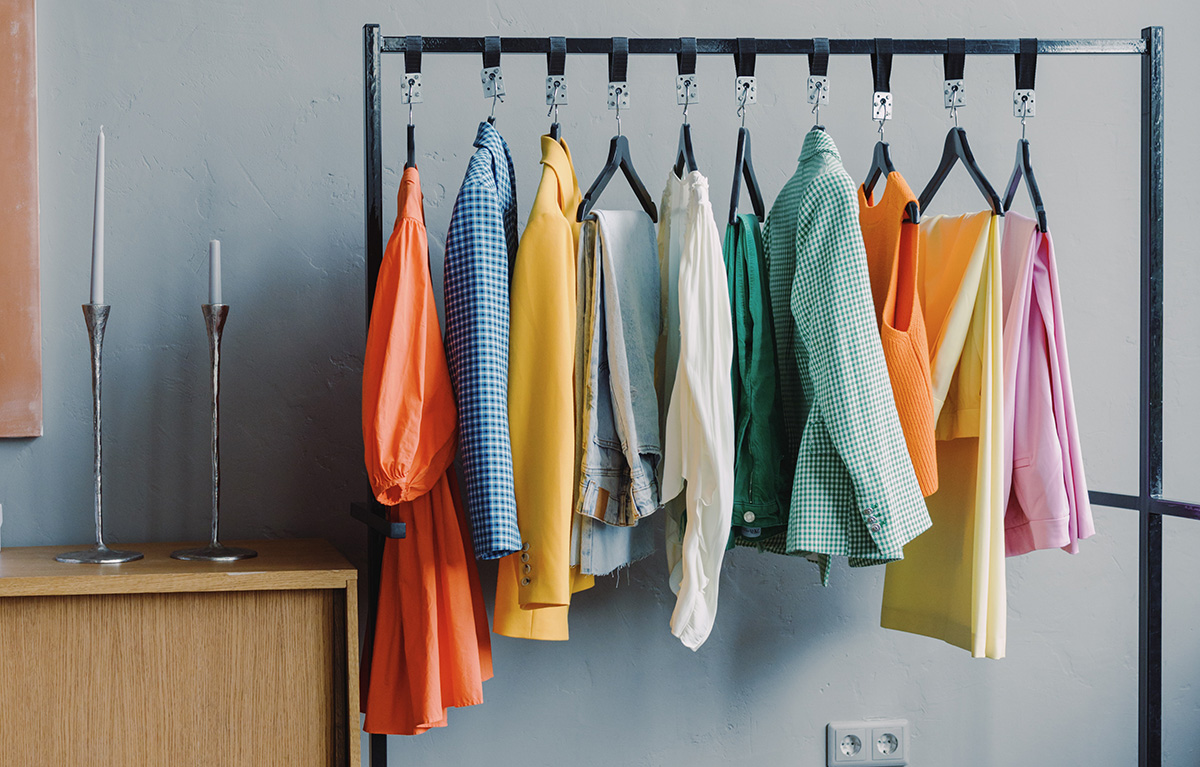
Dress in German
There’s the perfect dress for almost every event - from comfy shirt dresses to the classic black dress for any nighttime event.
| English | German | IPA |
|---|---|---|
| Dress | Kleid | [klaɪ̯t] |
| Long dress | Langes Kleid | [ˈlaŋəs klaɪ̯t] |
| Short dress | Kurzes Kleid | [ˈkʊʁt͡səs klaɪ̯t] |
| Maxi dress | Maxikleid | [maksi:klaɪ̯t] |
| Formal dress | Gesellschaftskleid | [ɡəˈzɛlʃaftsklaɪ̯t] |
| Semi-formal dress | Halb-formelles Kleid | [halp-fɔʁˈmɛləs klaɪ̯t] |
| Cocktail dress | Cocktailkleid | [ˈkɔktɛɪ̯lˌklaɪ̯t] |
| Tube dress | Schlauchkleid | [ʃlaʊ̯xklaɪ̯t] |
| Sheath dress | Etuikleid | [ɛtˈviːˌklaɪ̯t] |
| Wedding dress | Hochzeitskleid | [ˈhɔxt͡saɪ̯t͡sˌklaɪ̯t] |
| Dress with a train | Schleppenkleid | [ˈʃlɛpn̩klaɪ̯t] |
| Sundress | Strandkleid | [ˈʃtʁantˌklaɪ̯t] |
| Babydoll dress | Babydollkleid | [ˈbeːbiˌdɔlklaɪ̯t] |
| Shirt dress | Shirtkleid | [ʃøːɐ̯tklaɪ̯t] |
| Romper | Romper, Spielanzug | [ʁo:mpɐ] |
| Little black dress | Das kleine Schwarze | [das ˈklaɪ̯nə ˈʃvaʁt͡sə] |
Pants in German
“Pants” in German are “Hosen”. The most famous type of pants are the traditional “Lederhosen” but in everyday life, the most popular ones are probably shorts.
| English | German | IPA |
|---|---|---|
| Pants, Trousers | Hosen | [ˈhoːzən] |
| Sweatpants | Jogginghosen | [jɔgi:ŋsho:zən] |
| Tracksuit pants | Trainingshosen | [ˈtʁɛːnɪŋsˌhoːzən] |
| Suit pants | Hosenanzug | [ho:zənantsu:k] |
| Shorts | Shorts | [ʃoːɐ̯t͡s] |
| Bermuda shorts | Bermudashorts | [bɛʁˈmuːdaʃoːɐ̯t͡s] |
| Baggy Pants | Baggypants | [ˈbɛɡiˌpɛnt͡s] |
| Harem pants | Haremshosen | [ˈhaːʁɛmsˌhoːzn̩] |
| Denims | Jeans | [dʒiːns] |
| Chinos | Chinohose | [ˈtʃiːno] |
| Pajama bottoms | Schlafanzughose | [ˈʃlaːfʔant͡suːkˌhoːzə] |
Shirts and tops in German
The German word for “top” is “Oberteil”. Typically German, it’s very logical: The literal translation would be “upper thing”!
| English | German | IPA |
|---|---|---|
| Top | Oberteil | [ˈoːbɐˌtaɪ̯l] |
| Shirt | Shirt | [ʃɜːt] |
| T-shirt | T-shirt | [ˈtiːˌʃøːɐ̯t] |
| Blouse | Bluse | [ˈbluːzə] |
| Button up shirt | Hemd | [hɛmt] |
| Polo shirt | Polohemd | [ˈpoːloˌhɛmt] |
| Singlet | Trikothemd | [tʁiˈkoːhɛmt] |
| Tunic | Tunika | [ˈtuːnika] |
| Sweater | Pullover; Pulli | [pʊˈloːvɐ; ˈpʊliː] |
| Hoodie | Kapuzenpullover | [kaˈpuːtsnplovɐ] |
| Turtle neck | Rollkragenpullover | [ˈʁɔlkʁaːɡn̩pʊˌloːvɐ] |
| Sweater vest | Pullunder | [pʊˈlʊndɐ] |
Jacket or coat in German
These are especially important in the cold weather. Never, never forget your jacket in Germany! Even in the warmer months, it can get chilly here.
| English | German | IPA |
|---|---|---|
| Jacket | Jacke | [ˈjakə] |
| Coat | Mantel | [ˈmantl] |
| Vest | Weste | [ˈvɛstə] |
| Cardigan | Strickjacke | [ˈʃtʁɪkˌjakə] |
| Blazer | Blazer | [ˈbleːzɐ] |
| Windbreaker | Anorak | [ˈanoʁak] |
Skirt in German
“Skirt” in German is “Rock”. Easy to remember since skirts do kinda rock, right? Whatever your style is - mini denims or airy ruffled skirts - skirts are just easy and cool.
| English | German | IPA |
|---|---|---|
| Skirt | Rock | [ʁɔk] |
| Long skirt | Langer Rock | [ˈlaŋɐ ʁɔk] |
| Short skirt | Kurzer Rock | [ˈkʊʁt͡sɐ ʁɔk] |
| Mini skirt | Minirock | [ˈmɪniˌʁɔk] |
| Ruffled skirt | Rüschenrock | [ˈʁyːʃn̩ʁɔk] |
| Pencil skirt | Bleistiftrock | [ˈblaɪ̯ʃtɪftˌʁɔk] |
| Pleated skirt | Faltenrock | [ˈfaltnʁɔk] |
| Kilt | Schottenrock | [ˈʃɔtn̩ʁɔk] |
| A-line skirt | Glockenrock | [ˈɡlɔkənʁɔk] |
| High-waisted skirt | Hochtaillierter Rock | [hoːxtaˈjiːɐ̯tɐ ʁɔk] |
Shoes and boots in German
In German there are almost as many words for slippers as for all other kinds of shoes combined: Germans say “Pantoffeln”, “Puschen”, and “Latschen”, while the Swiss say “Finken” and the Austrians say “Schlapfen”, “Schluffen”, and “Patschen”. That almost sounds like someone is just making up German-sounding words, but they’re all real!
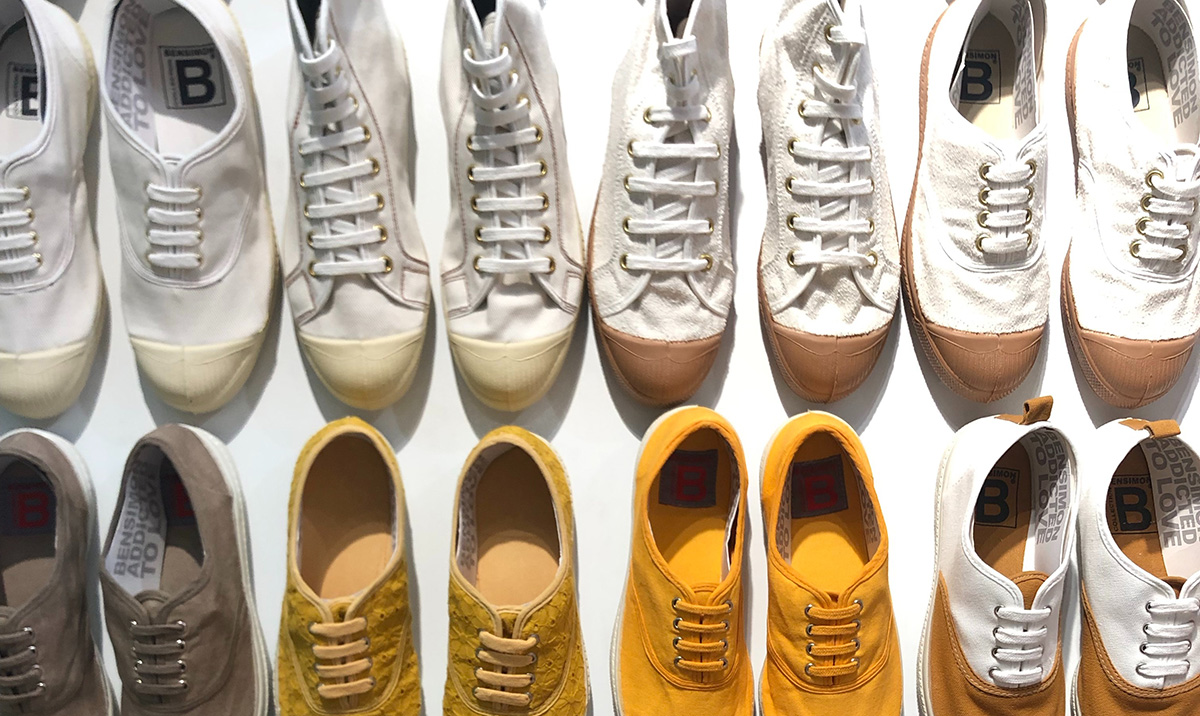
| English | German | IPA |
|---|---|---|
| Shoes | Schuhe | [ˈʃuːə] |
| Boots | Stiefel | [ˈʃtiːfl̩] |
| Ankle boots | Stiefeletten | [ʃtiːfəˈlɛtn̩] |
| Stiletto | Stilettos | [ʃtiˈlɛtos] |
| Gumboot | Gummistiefel | [ˈɡʊmiˌʃtiːfl̩] |
| High heels | Hackenschuhe | [ˈhaknˈʃuːə] |
| Pumps | Pumps | [pœmps] |
| Sandals | Sandalen | [zanˈdaːlən] |
| Flip flops | Flip Flops | [ˈflɪpflɔps] |
| Formal shoes | Formelle Schuhe | [fɔʁˈmɛlə ˈʃuːə] |
| Flat shoes | Flache Schuhe | [ˈflaxə ˈʃuːə] |
| Sneakers | Turnschuhe | [ˈtʊʁnˌʃuːə] |
| Hiking shoes | Wanderschuhe | [ˈvandɐˌʃuːə] |
| Ballerinas | Ballerinas | [baləˈʁiːnas] |
| Clogs | Holzschuhe | [ˈhɔlt͡sˌʃuːə] |
| House shoes | Hausschuhe | [ˈhaʊ̯sˌʃuːə] |
| Slippers | Pantoffeln; Latschen; Puschen | [panˈtɔfl̩n; la:tʃən; ˈpʊʃn̩] |
| Slippers (Swiss) | Finken | [ˈfɪŋkŋ̍] |
| Slippers (Austrian) | Schlapfen; Schluffen; Patschen | [ˈʃlap͡fn̩; ˈʃlʊfn̩; patʃən] |
Hats in German
If you’re up for a big fashion statement, choose a hat! They’re one of the most versatile pieces of clothing and probably the boldest one.
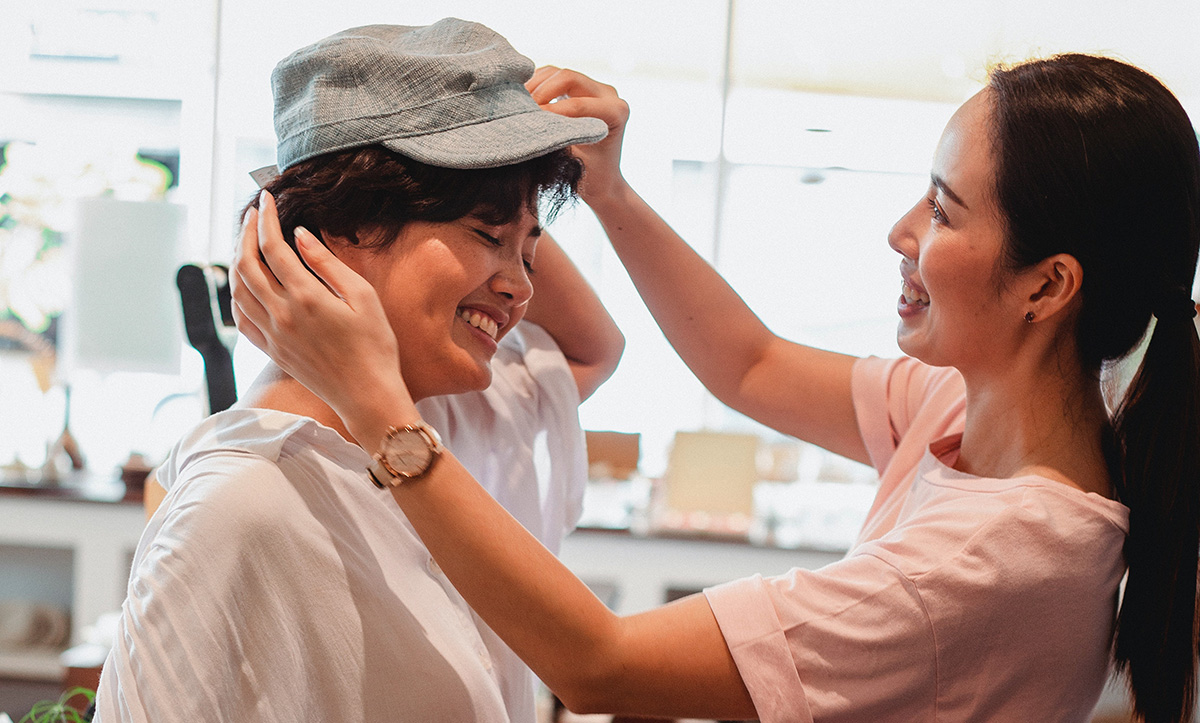
| English | German | IPA |
|---|---|---|
| Hat | Hut | [huːt] |
| Summer hat | Sommerhut | [ˈzɔmɐˌhuːt] |
| Cap | Cap; Cappie | [kɛp; kɛpi:] |
| Beret | Baskenmütze | [ba:skənmʏt͡sə] |
| Fedora | Filzhut | [ˈfɪlt͡sˌhuːt] |
| Beanie | Mütze | [ˈmʏt͡sə] |
| Straw hat | Strohhut | [ˈʃtʁoːˌhuːt] |
| Cowboy hat | Cowboyhut | [ˈkaʊ̯bɔɪ̯ˌhuːt] |
| Pointed hat | Spitzhut | [ʃpɪt͡shuːt] |
| Boonie hat | Safarihut | [zaˈfaːʁihuːt] |
| Top hat | Zylinder | [tsy:li:nde:] |
| Chef’s hat | Kochmütze | [ˈkɔxˌmʏt͡sə] |
| Turban | Turban | [ˈtʊʁbaːn] |
| Hood | Kapuze | [kaˈpuːtsə] |
| Bonnet | Haube | [ˈhaʊ̯bə] |
| Helmet | Helm | [hɛlm] |
Other important clothing-related terms
Accessories can make or break an outfit. Most of them are somewhat seasonal, like scarves and gloves or sunglasses and summer hats. These are a number of accessories and other clothes-related terms we wouldn’t wanna miss including our personal favorites: pajamas!
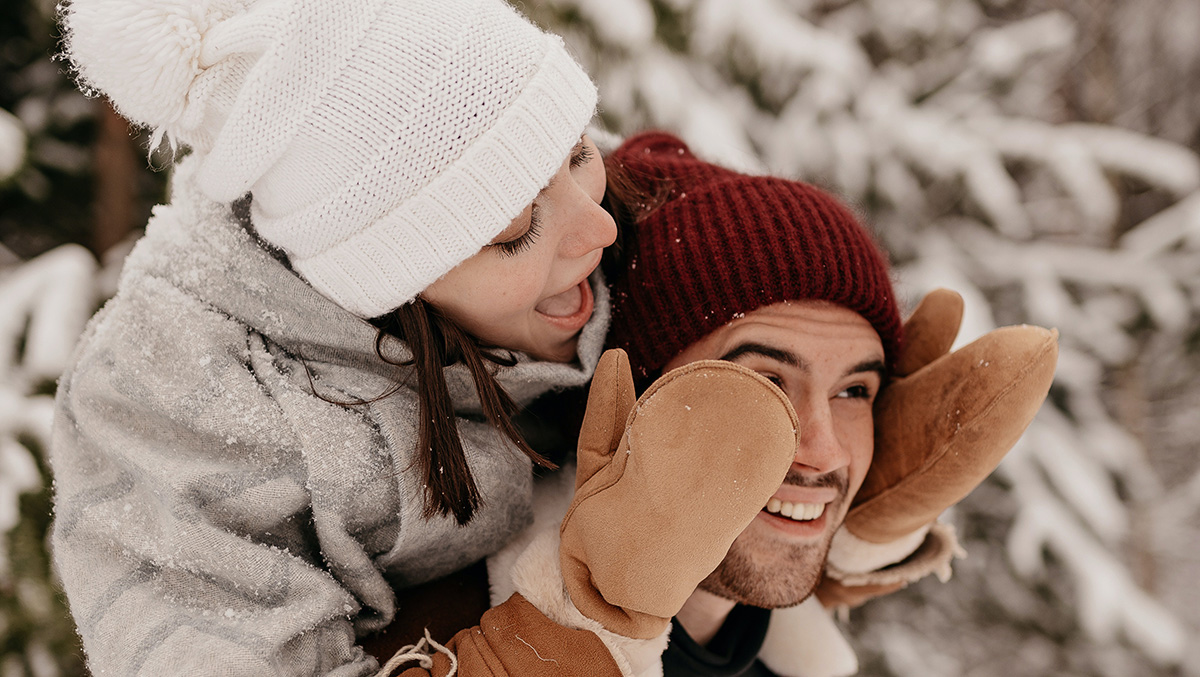
| English | German | IPA |
|---|---|---|
| Scarf | Schal | [ʃaːl] |
| Shawl | Tuch | [tuːx] |
| Headscarf | Kopftuch | [ˈkɔp͡fˌtuːx] |
| Gloves | Handschuhe | [ˈhantˌʃuːə] |
| Mittens | Fäustlinge | [ˈfɔɪ̯stlɪŋə] |
| Earmuffs | Ohrenschützer | [ˈoːʁənˌʃʏt͡sɐ] |
| Legwarmers | Stulpen | [ˈʃtʊlpn̩] |
| Watch | Uhr | [uːɐ̯] |
| Belt | Gürtel | [ˈɡʏʁtl̩] |
| Collar | Kragen | [ˈkʁaːɡn̩] |
| Necklace | Halskette | [ˈhalsˌkɛtə] |
| Ring | Ring | [ʁɪŋ] |
| Earring | Ohrring | [ˈoːɐ̯ˌʁɪŋ] |
| Toe ring | Zehenring | [ˈtseənŋ] |
| Bracelet | Armband | [ˈaʁmˌbant] |
| Piercing | Piercing | [ˈpiːɐ̯sɪŋ] |
| Umbrella | Regenschirm | [ˈʁeːɡn̩ˌʃɪʁm] |
| Sunglasses | Sonnenbrille | [ˈzɔnənˌbʁɪlə] |
| Bathing suit | Badeanzug | [ˈbaːdəˌʔant͡suːk] |
| Bikini | Bikini | [biˈkiːni] |
| Swim trunks | Badehosen | [ˈbaːdəˌhoːzn] |
| Uniform | Uniform | [ˈʊniˌfɔʁm] |
| School uniform | Schuluniform | [ˈʃuːlʔʊniˌfɔʁm] |
| Pajamas | Schlafanzug | [ˈʃlaːfʔanˌt͡suːk] |
Clothing-related German idioms
Here are eight fun clothing-related German idioms that we found for you. We have shaken them out of our sleeves, you might say.
| German | Literal translation | Meaning |
|---|---|---|
| Aus dem Ärmel schütteln | To shake something out of your sleeve | To come up with something just like that |
| Kleider machen Leute | Clothes make people | Clothes are status symbols |
| Das ist Jacke wie Hose | That’s jacket like pants | It makes no difference |
| Eine weiße Weste haben | To have a white west | To be innocent |
| Mir platzt der Kragen | My collar is bursting | I’m bursting with anger |
| Jemanden mit Samthandschuhen anfassen | To touch someone with silk gloves | To handle somebody with kid gloves |
| Zusammen unter einem Hut stecken | To stick under the same hat together | To be in the cahoots together |
| Wo drückt der Schuh? | Where does the shoe pinch? | What’s wrong? |
Clothes related verbs in German
We do so many things with our clothes: put them on, take them off, wash them, dry them, fold them. Laundry is a never-ending circle and this is how you describe that circle in German with a number of clothes-related verbs.
| English | German | IPA |
|---|---|---|
| To get dressed | Sich anziehen | [zɪç antsi:ən] |
| To get undressed | Sich ausziehen | [zɪç: ˈaʊ̯sˌt͡siːən] |
| To try on | Anprobieren | [ˈanpʁoˌbiːʁən] |
| To wear | Tragen | [ˈtʁaːɡn̩] |
| To suit | Stehen | [ˈʃteːən] |
| To tailor | Maßschneidern | [ˈmaːsˌʃnaɪ̯dɐn] |
| To button up | Zuknöpfen | [ˈtsuknœpfn] |
| To zip up | Den Reißverschluss zumachen | [de:n ˈʁaɪ̯sfɛɐ̯ˌʃlʊs tsu:maxən] |
| To sew | Nähen | [ˈnɛːən] |
| To knit | Stricken | [ˈʃtʁɪkn̩] |
| To crochet | Häkeln | [ˈhɛːkl̩n] |
| To patch | Flicken | [ˈflɪkn̩] |
| To wash | Waschen | [ˈvaʃn̩] |
| To dry | Trocknen | [ˈtʁɔknən] |
| To iron | Bügeln | [ˈbyːɡl̩n] |
| To fold | Falten | [ˈfaltən] |
Cultural considerations when it comes to clothing in German
When you travel to Germany, you’re in for a few clothes and laundry-related surprises. Don’t expect a dryer in every household and definitely don’t expect all Germans to actually wear Lederhosen or Dirndl!
- While you might picture Germans wearing “Trachtenkleidung”, the famous clothing that consists of “Lederhosen” (Leather pants) and “Dirndl” (A traditional dress), you might be surprised that this is exclusively a Bavarian tradition. In all other parts of Germany, it’s rather unlikely you’ll see people wear anything like this!
- Washing machines are significantly smaller. Most washing machines are only the size of what would be considered a half load in the US.
- You probably won’t find any top-loaders either because European homes tend to be a lot smaller, too. In apartments, washers are often part of the kitchen and therefore designed in a way that leaves some counter space on top of them.
- Only around 40% of German households have a dryer and even those who do use them a lot less frequently than Americans.
- Dryer guilt is a thing in Germany! Even if dryers are used, they tend to run for a long time because they’re often set to a more eco-friendly setting. To be honest, dryers are kind of frowned upon by many people because of their environmental impact.
Fashion is fun but clothes are even more than that
Clothes are a huge part of our lives, bigger than some of us may realize. As Stanley Tucci rightfully points out in The Devil Wears Prada: “Halston, Lagerfeld, de la Renta - what they did, what they created was greater than art because you live your life in it.” - and he’s right. We do spend our lives in clothes.
So take the time to learn some of these clothes-related German terms and make your language learning journey that much more fashionable!
Want more free German language and culture tips? Check out the other great articles we’ve got for you on our German language blog.



